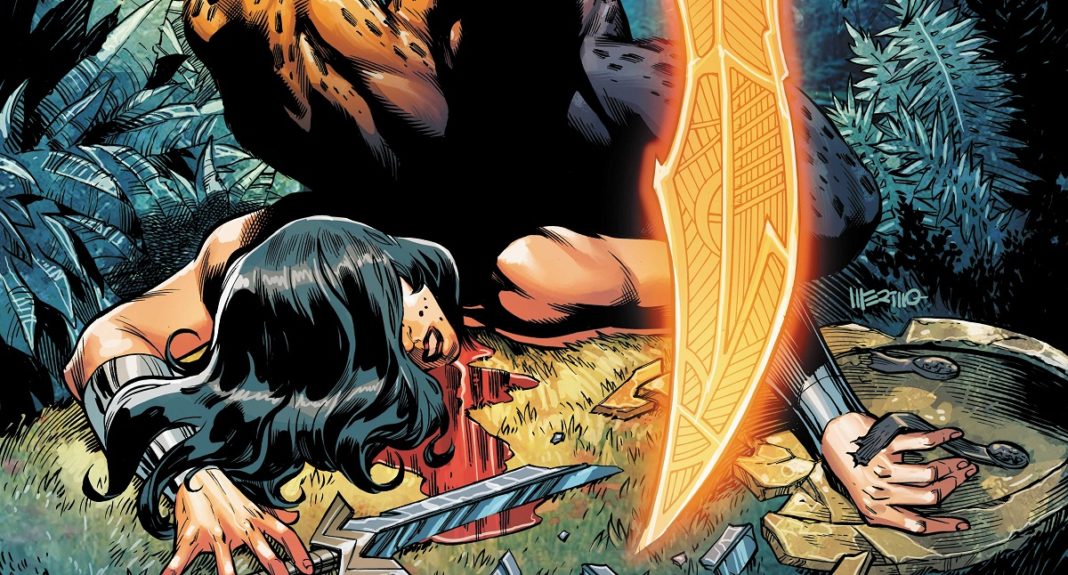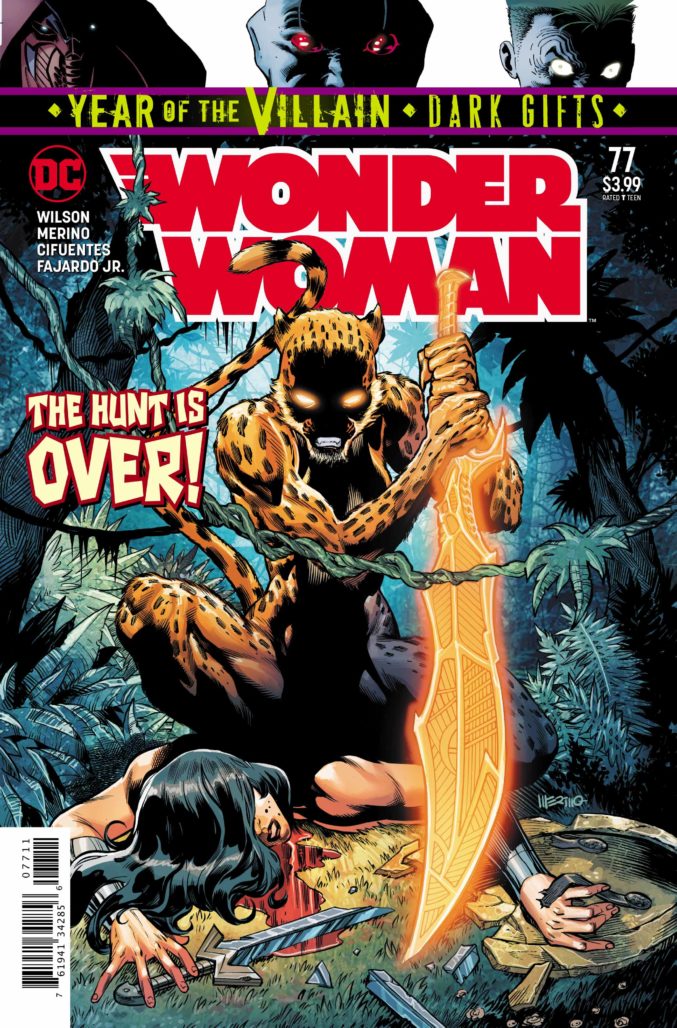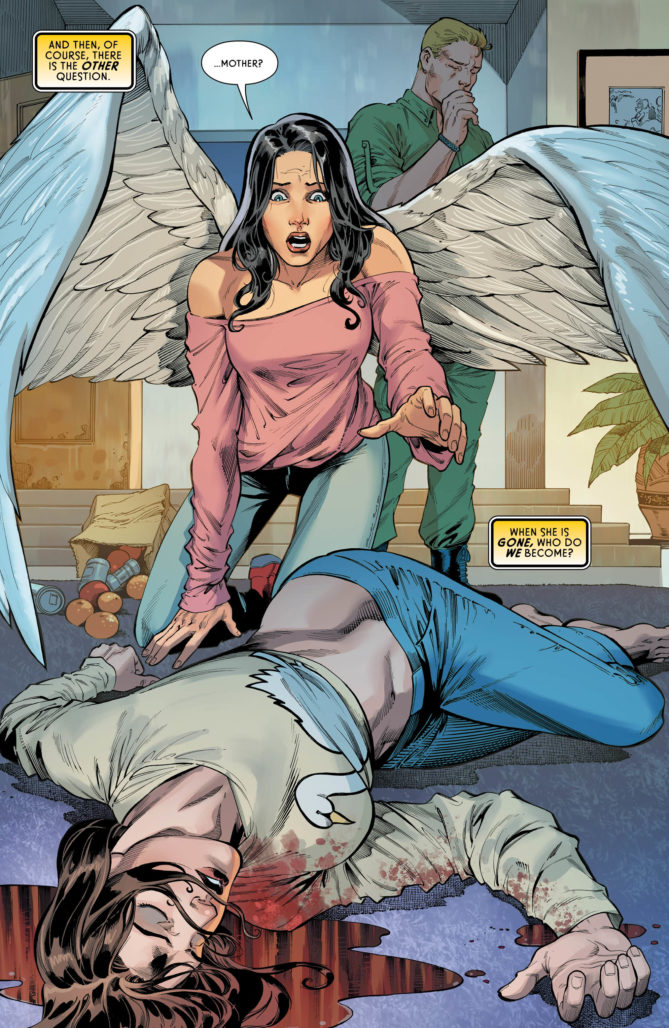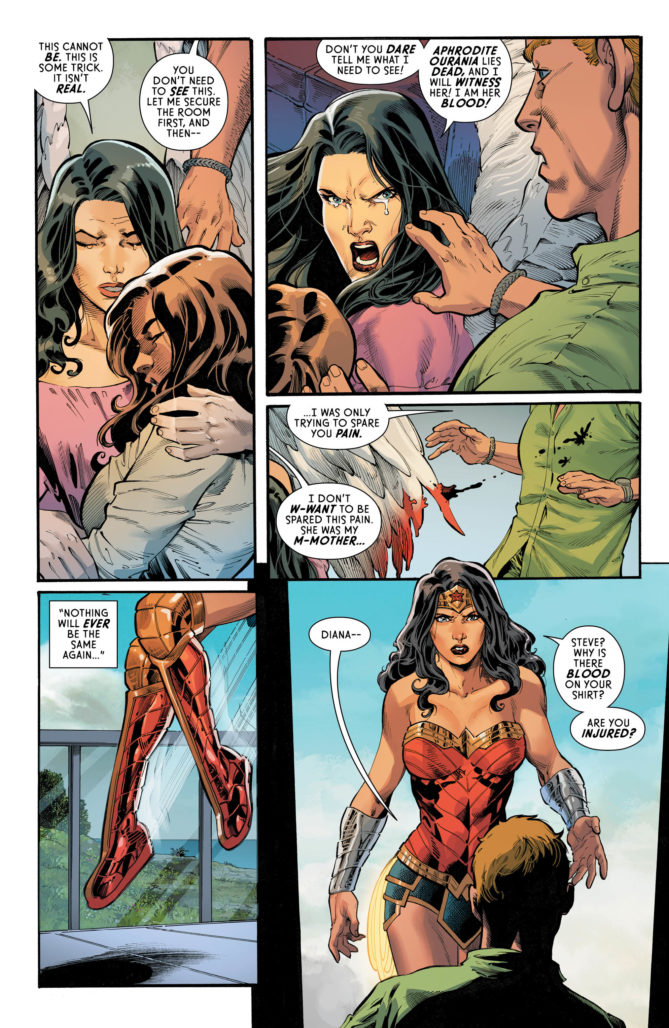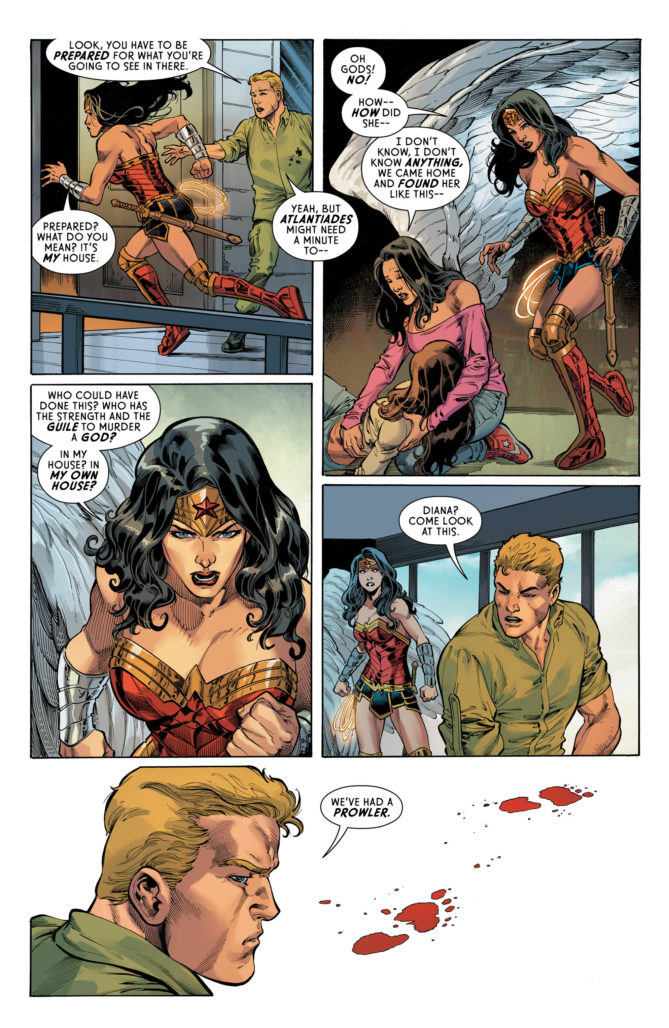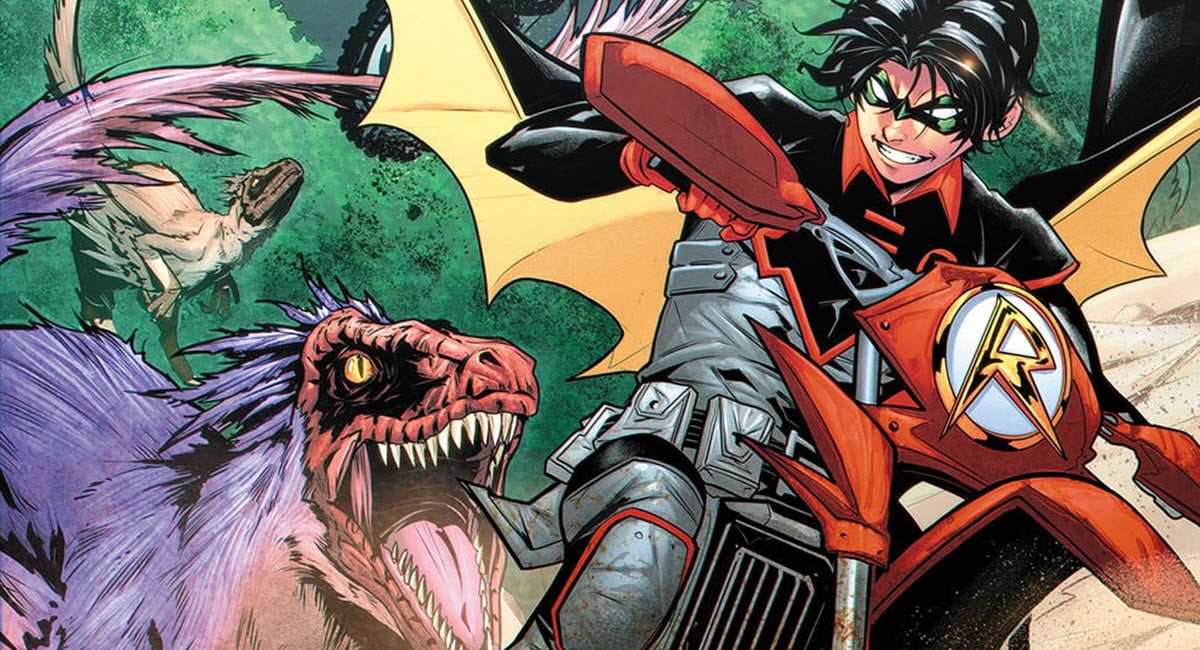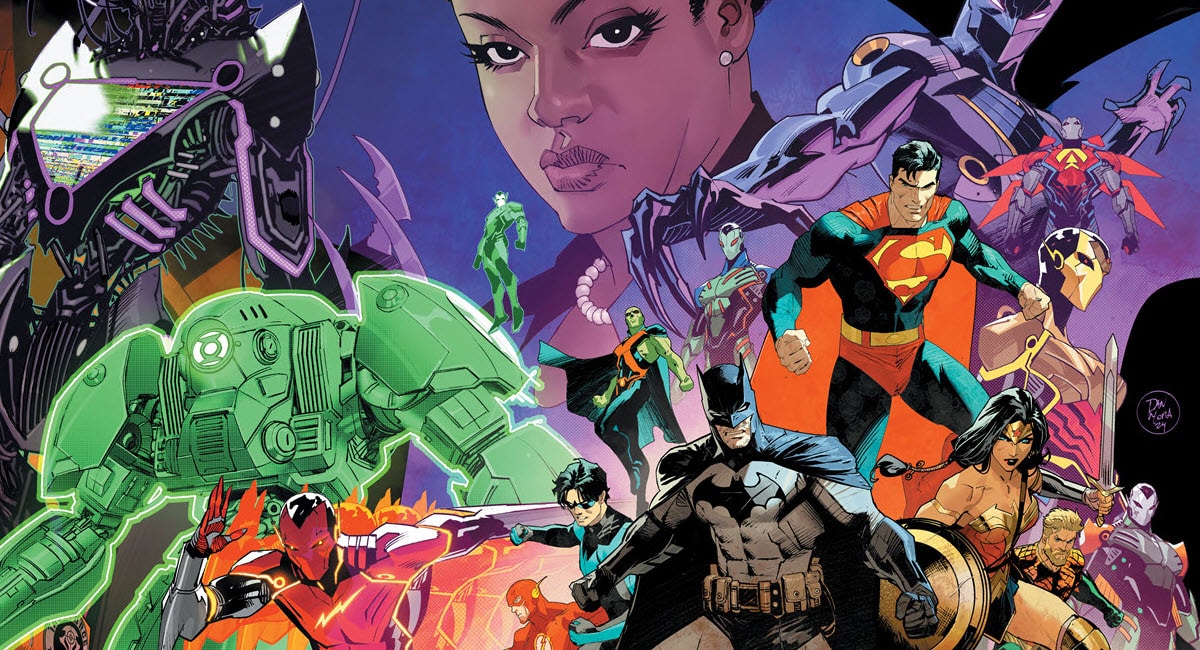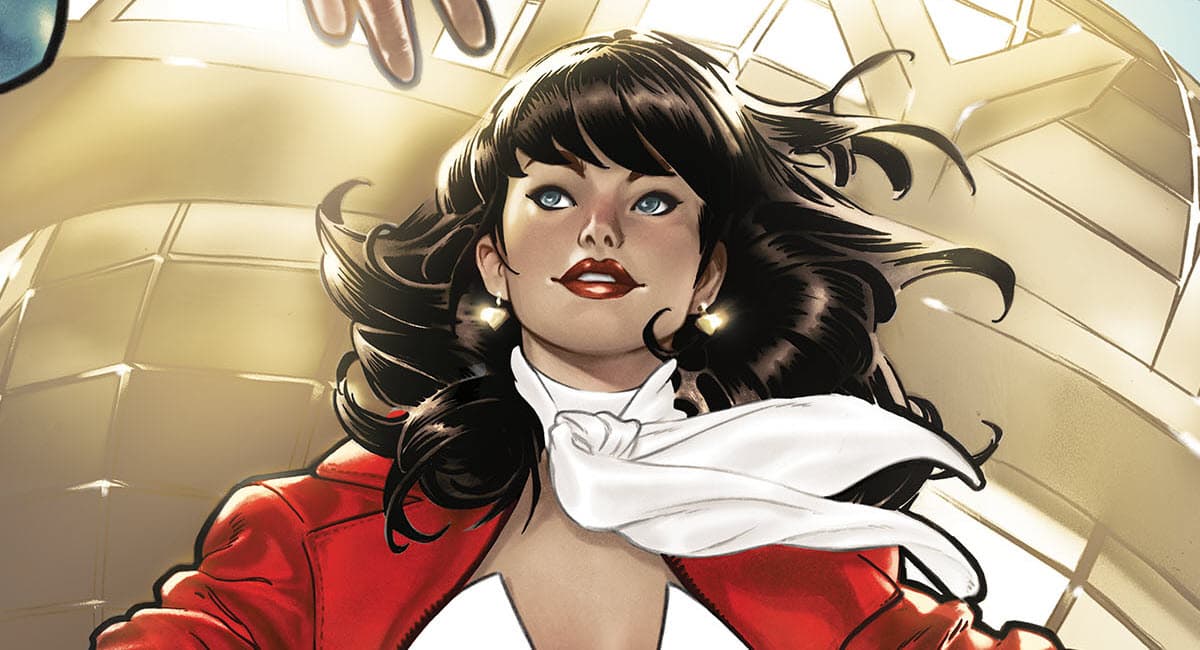THIS WEEK: Wonder Woman #77 introduces new foes and a tragic wrinkle into the epic.
Note: the reviews below contain spoilers. If you want a quick, spoiler-free buy/pass recommendation on the comics in question, check out the bottom of the article for our final verdict.
 Wonder Woman #77
Wonder Woman #77
Writer: G. Willow Wilson
Pencils: Jesus Merino
Inker: Vicente Cifuentes
Colorist: Romulo Fajardo Jr.
Letterer: Pat Brosseau
The big idea: “When you believe you are the only rational one in a situation– the only one capable of objectivity— you begin to make serious errors in judgment. I was taught differently. I was taught to sit with each unruly sensation and recognize it for what it is. For even rage has something to teach us.”
For a very long part of my life, I was afraid of being angry. I came from a household where I, like most boys, was taught not to cry. I was told that tears would never get me what I wanted. My dad was a man of science, so logic, cold and calculating with a clear right and wrong, would always win the day. After all, when you’re synthesizing a chemical, you either do things right and get the product you want or you make a mistake and, well, end up with nothing. If the most basic elements of the Earth work this way, why should people work any differently? We have laws. They need to be followed. Justice may be slow, but it is blind. The woman with the scales is wearing a blindfold, after all.
Wonder Woman #77 articulates a different path– a path that I still struggle to navigate thanks to the discomfort it causes, but one that I think ultimately results in real change. In real progress. In real justice.
This issue opens with the death of Aphrodite, the goddess of love. Wonder Woman’s partner, Steve Trevor, and Aphrodite’s child, Atlantiades, discover her body on the floor of Diana’s home. As Atlantiades’ mood shifts from anger to sorrow and back, the book poses a question: when love “is gone, who do we become?” Where, throughout most of this run of Wonder Woman, we’ve had moments of levity and joy channeled through unexpected heroes discovering their true strength and anthropomorphic creatures learning to interact with the intricacies of the human world, now, we only have war. Steve and Diana never share a moment of affection in this book. Diana’s face is grit and her body is constantly posed in battle-ready forms. She aims for a fight. As she says, she is “Diana of the hunt now.” And she sees “only [her] quarry.”
We see Steve himself give voice to doubts that plagued Diana several arcs ago when she first met Atlantiades. Rather than marvel at what makes their coupling unique, we now see him ask Wonder Woman when he will come before the world. Before the gods. After all, isn’t that what love is? Devotion to something above all other things? We see him ask whether all his worrying– whether all the stress of playing host to gods and having one die on the property– is ultimately worth it. ‘maybe love isn’t worth all this effort anyway.”
As Wonder Woman confronts Aphrodite’s killer, Cheetah, she readies herself for battle. She raises her sword, only to find herself sapped of strength for an instant. Suddenly, she cannot remember why she’s fighting Cheetah at all. And in that moment of weakness, she finds herself on her back– the unbeatable Amazon at a disadvantage against a god killer. A god killer who claims to have “killed the power you didn’t even know you had.”
Many of us are taught that rage is bad. And love is good. Rage makes us feel reckless and tense. Love is a motivator that, at its best, settles the heart and fulfills the soul. The best love, we are taught, is a love devoid of conflict– the perfect coupling of matching souls.
Yet in Atlantiades, we learn the true nature of love. They are the scorned child of Aphrodite, yes, left to fend for themselves for too long a time. They have every right to be angry. And yet, as their mother burns upon the pyre, they say “I miss her and I’m angry at her. Is that terrible?”
“No,” Diana replies, “it is honest.”
That is the true nature of love. It does not lie in opposition to rage, but rather in perfect harmony with it. Justice is not blind or objective. Just as laws are neither as well. Justice is an interpretation of the world– a lens through which we see what makes the world beautiful to us. And when that beauty is threatened, of course we must react with rage– this world is the only one we have and our time on it is short– all we can do is fight to defend what we love.
And so, when love is dead, what happens to our rage? What is left to fight for?
Best Exchange
Atlantiades: “What is this? It taste like charred tree roots and sorrow.”
Steve Trevor: “Coffee. A guaranteed pathway back to reality.”


